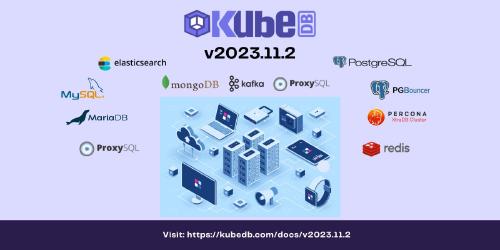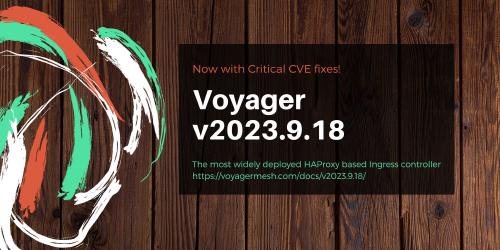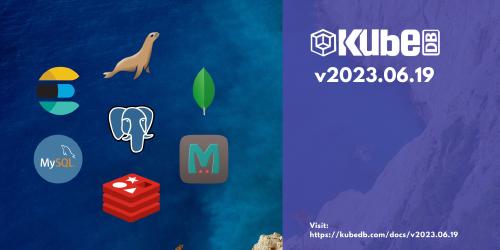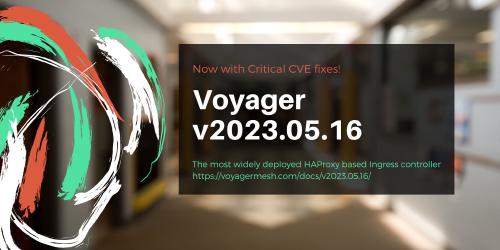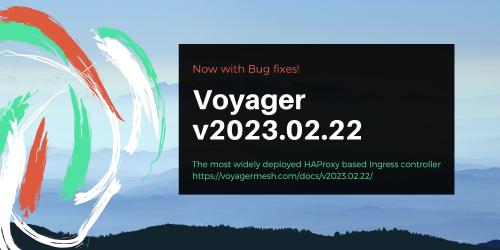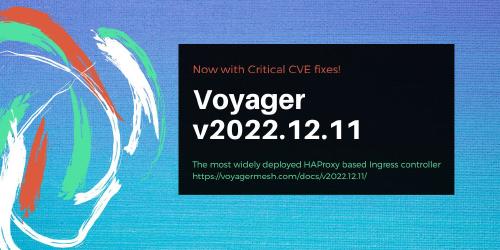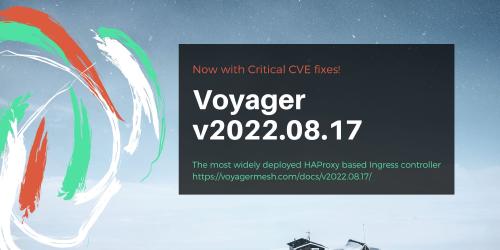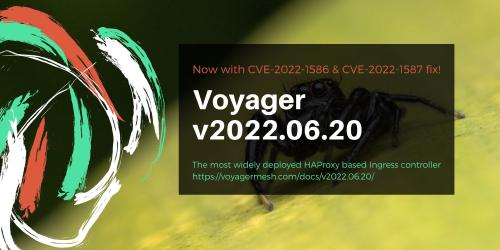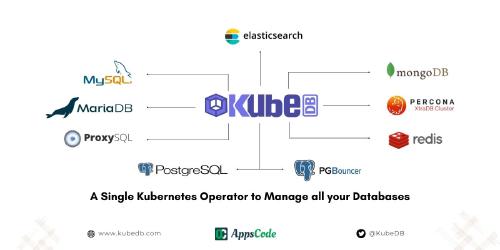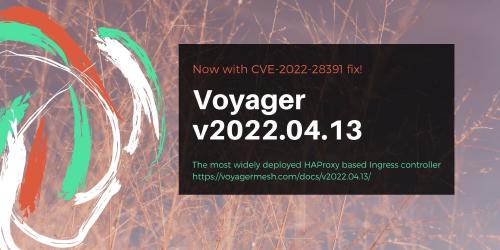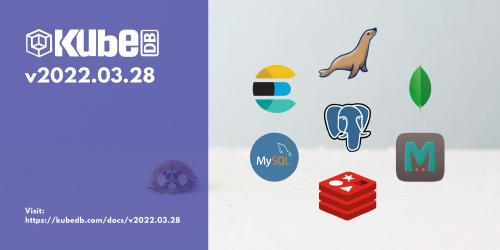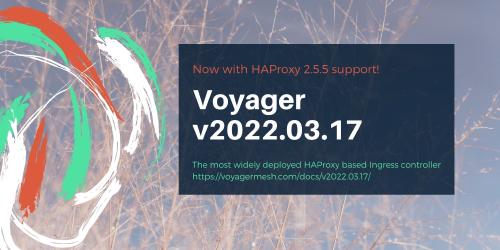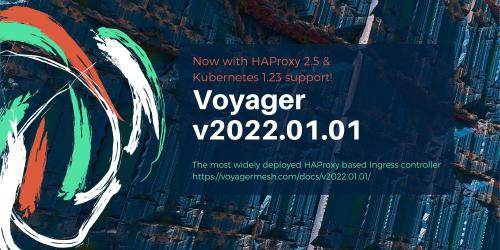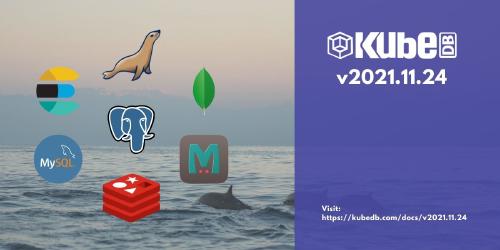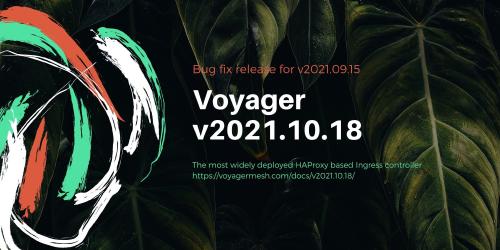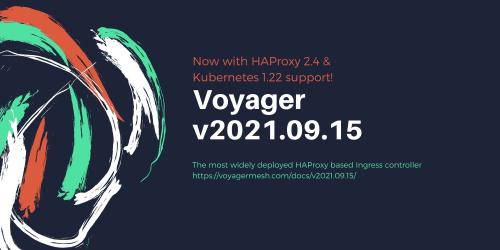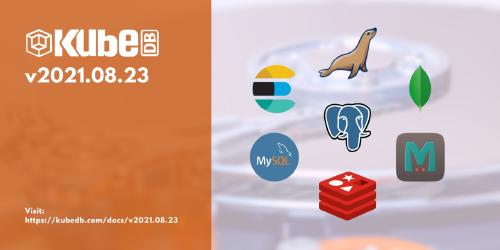KubeDB
Run Production-Grade Databases on Kubernetes
arrow_forwardKubeStash
Backup and Recovery Solution for Kubernetes
arrow_forwardStash
Backup and Recovery Solution for Kubernetes
arrow_forwardKubeVault
Run Production-Grade Vault on Kubernetes
arrow_forwardVoyager
Secure Ingress Controller for Kubernetes
arrow_forwardConfigSyncer
Kubernetes Configuration Syncer
arrow_forwardKubeDB simplifies Provisioning, Upgrading, Scaling, Volume Expansion, Monitor, Backup, Restore for various Databases in Kubernetes on any Public & Private Cloud
- task_altLower administrative burden
- task_altNative Kubernetes Support
- task_altPerformance
- task_altAvailability and durability
- task_altManageability
- task_altCost-effectiveness
- task_altSecurity

A complete Kubernetes native disaster recovery solution for backup and restore your volumes and databases in Kubernetes on any public and private clouds.
- task_altDeclarative API
- task_altBackup Kubernetes Volumes
- task_altBackup Database
- task_altMultiple Storage Support
- task_altDeduplication
- task_altData Encryption
- task_altVolume Snapshot
- task_altPolicy Based Backup

A complete Kubernetes native disaster recovery solution for backup and restore your volumes and databases in Kubernetes on any public and private clouds.
- task_altDeclarative API
- task_altBackup Kubernetes Volumes
- task_altBackup Database
- task_altMultiple Storage Support
- task_altDeduplication
- task_altData Encryption
- task_altVolume Snapshot
- task_altPolicy Based Backup

KubeVault is a Git-Ops ready, production-grade solution for deploying and configuring Hashicorp's Vault on Kubernetes.
- task_altVault Kubernetes Deployment
- task_altAuto Initialization & Unsealing
- task_altVault Backup & Restore
- task_altConsume KubeVault Secrets with CSI
- task_altManage DB Users Privileges
- task_altStorage Backend
- task_altAuthentication Method
- task_altDatabase Secret Engine

Secure Ingress Controller for Kubernetes
- task_altHTTP & TCP
- task_altSSL
- task_altPlatform support
- task_altHAProxy
- task_altPrometheus
- task_altLet's Encrypt

Kubernetes Configuration Syncer
- task_altConfiguration Syncer
RECENT NEWS/BLOG
1 DecUpdate on Community License
byTamal SahaAppsCode has offered a Community License that allows freely using our various products in a demo namespace since July 1, 2020. Going forward we intend to focus on our commerical offerings. From Jan 1, 2024, users will not be able to issue any new community licenses. Any existing community licenses will continue to work as-is until those expire. We continue to offer a one-time 30 day license for a Kubernetes cluster for FREE to test all the features of our products.
7 NovSee More arrow_forwardAppsCode launches public beta of the Kubernetes Native Data Cloud
byTamal SahaIntroducing Kubernetes Native Data Cloud from AppsCode - a single pane of glass for all databases deployed on Kubernetes with KubeDB. To sign up, visit this link . Today AppsCode launched the public beta of their Kubernetes Native Data Cloud - a single pane of glass for all databases deployed on Kubernetes with KubeDB. Using AppsCode’s innovative cloud solution, developers can perform any DBA tasks in a few clicks. No more YAML engineering and more app developing!
- Webinar New







